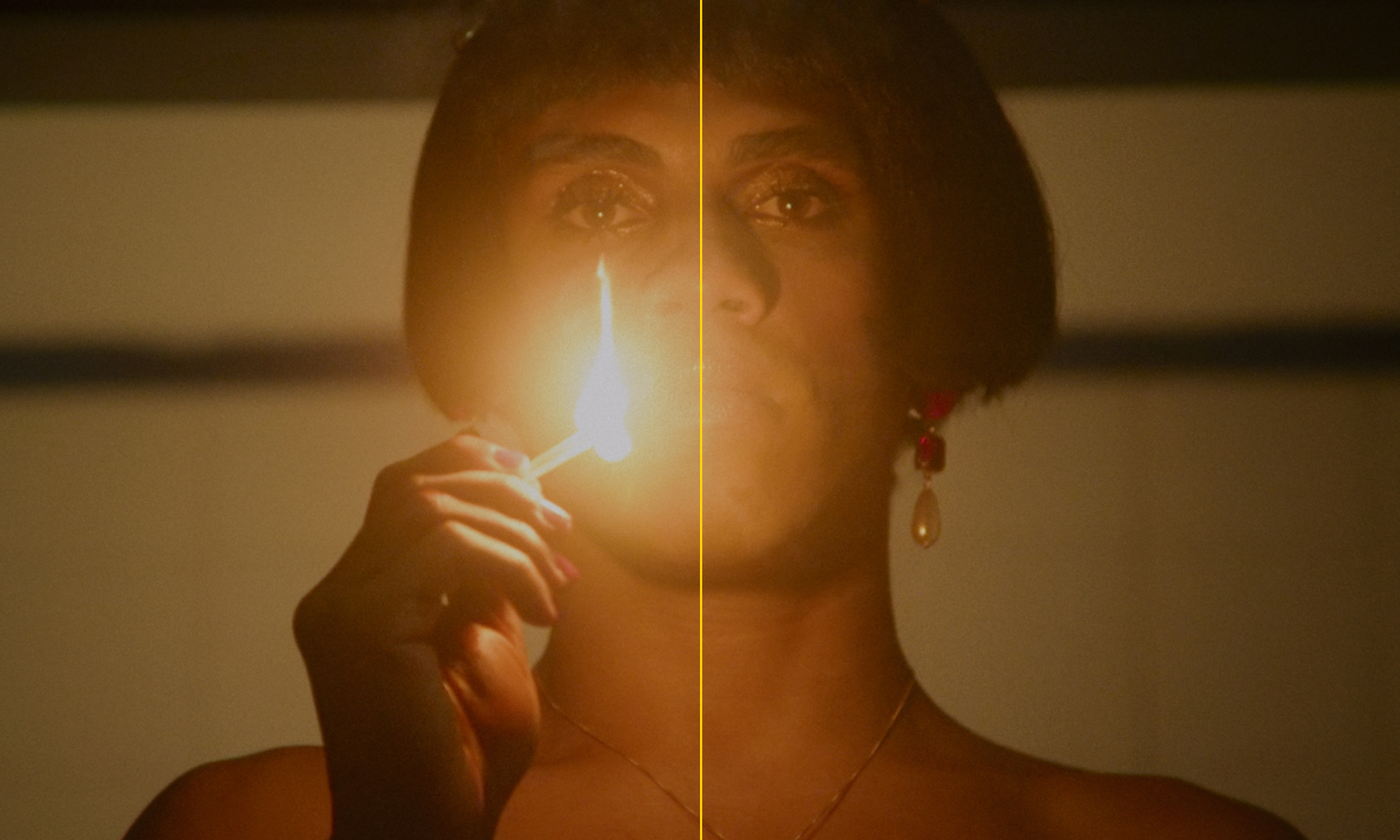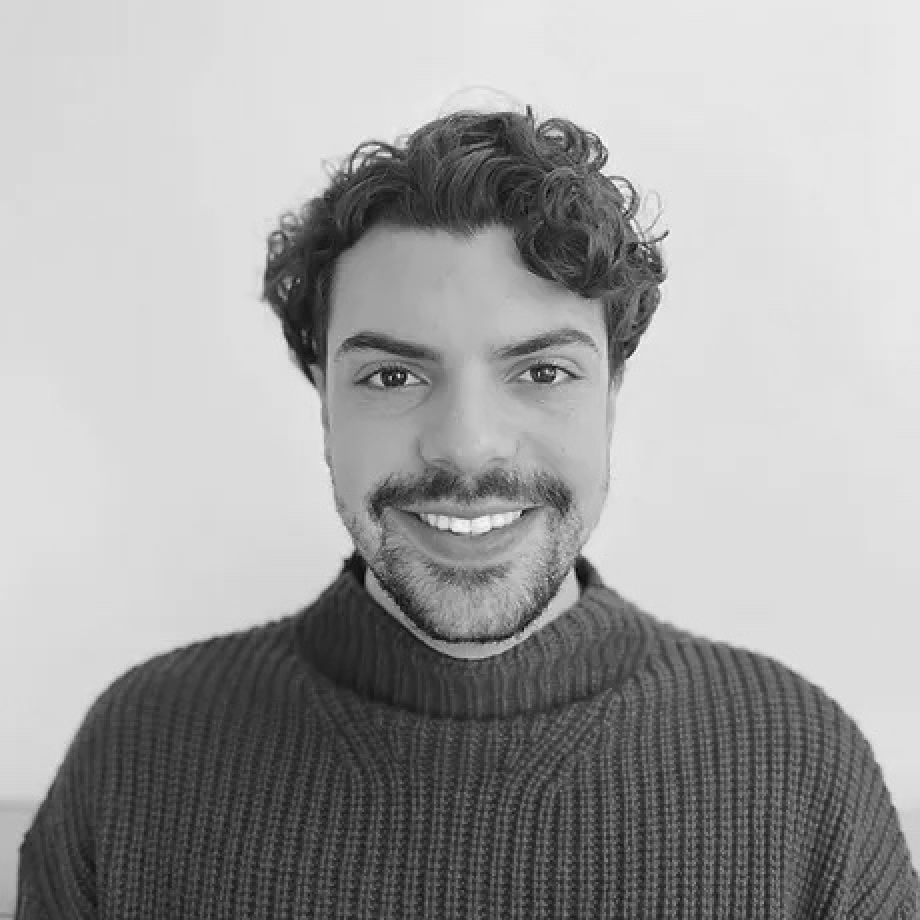
Guest response
QUEER REFUGIUM AND RESISTANCE AMIDST FASCIST STATES: DANIEL ZACARIOTTI INTERVIEWS GIL BARONI ON CASA IZABEL
Producer and director Gil Baroni gained widespread recognition in 2019 with his third feature film, Alice Júnior, a coming-of-age story about a trans girl preparing for her first kiss in a conservative setting. The film premiered in 2019 as part of the Generation section of the 70th Berlin International Film Festival and won several awards at major Brazilian festivals, including the Felix Award for best national film at the Rio Film Festival and four awards at the Brasília Film Festival. Following Alice Júnior, Baroni continued to focus on queer and dissident narratives, with his latest work, Casa Izabel. Baroni's fourth feature film, which was shot in 2019 and released in 2022, moves away from the upbeat tone of Alice Júnior to explore a more intersectional critique of Brazil's past.
Set in Brazil in the early 1970s, during the military dictatorship, Casa Izabel depicts a group of men who gather annually, away from society, to cross-dress in a Casa Grande (the term used for the grand houses of slavers in colonial Brazil, as opposed to the Senzalas where the enslaved lived). By encapsulating the possibility of queer existence during a repressive government that enforced the erasure of deviant sexualities and genders, the film presents a contemporary intersectional reading of queerness, race, and class – balancing the film’s 1970s setting with the context of its production and distribution under Bolsonaro’s government.
To what extent was Casa Izabel influenced by the book and documentary Casa Susanna?
Casa Izabel was initially the idea of the actress who plays Dália in the film, Laura Haddad. Laura approached Diana, the film’s distributor, and said, “Look, I have this book here, Casa Susanna; it's a book of photographs.” She wanted to bring the concept of a refuge, a retreat for cross-dressers, to Brazil. Diana then got in touch with me, and when she showed me the photos, I immediately said, “I'm interested.” We then brought in Luiz Bertazzo, our scriptwriter, and began a creative process that gradually detached itself from Casa Susanna and became Casa Izabel. I say “detached” because, at the time, we didn’t know who the people in the book were – it was simply an enigmatic collection of photographs.
A book that, at first glance, appeared to be about men who practised cross-dressing, but as the documentary later revealed, it was not only about cross-dressing men but also about the trans women who attended the retreat. Casa Izabel, unlike Casa Susanna, doesn’t focus on trans women but rather on cross-dressing. Our challenge was to develop a script based on these photos and a cast Laura had already suggested. From there, we decided the film had to be set during the dictatorship, reflecting a Brazil under a military coup and the rule of AI-5, yet one that had just won the World Cup. [Institutional Act Number Five, commonly known as AI-5, was the fifth of seventeen extra-legal Institutional Acts issued by the military government in the years following the 1964 Brazilian coup d'état.] This context added depth to our narrative: what if some of these men were in the military and attended this secluded retreat to live out their fantasies? What if, amongst these white men, there was a black character? And what if this house was a former slave house in southern Brazil? The house itself dates back to the period of slavery, located in a region known as ‘Brazilian Europe’. Casa Izabel is an original story created by Luiz Bertazzo, deeply connected to our present and our past.
As you mentioned, the film portrays a highly intersectional reading of Brazil and its era – particularly intertwining queerness and race through the character Leila. Could you elaborate on why this character is present in Casa Izabel?
I see Leila as the protagonist. Leila has a marker that cannot be hidden: her skin colour. She is already excluded from the possibility of escaping into the fantasy that the other characters indulge in when they come to this house to escape their lives and practise cross-dressing. Leila brings discomfort to these characters, who seek to live in a fantasy world within this house. Leila is a boy under the care of his adoptive white mother, who, in the film’s setting, is fated to serve Izabel, the house owner. But Leila subverts this structure. She subverts this logic. She uses debauchery to expose the farce of the other characters, who imagine themselves as actresses and writers. She mocks a structure that is destined to end, a structure that is about to collapse with the end of the dictatorship. It is a structure that will soon open the door to a more racially literate and activist Brazil.
Thus, Leila represents the complexities of racial struggle within Casa Izabel. She embodies the rupture of white hegemony, of a master-servant dynamic. Leila also signifies the end of this house. In keeping with the film's narrative, which unfolds over the course of a day and ends with the house in flames, Leila questions the house’s inability to evolve, despite having had its glory days. For me, this body, this character, is a challenge in the sense that she is always mocking and aware of being an uncomfortable presence. Leila shows that this house is not inviolable, as an undercover government agent will later confirm in the film. Leila breaks the sanitised view of white private property as something sacrosanct. The house, initially perceived as a place of refuge and safety, reveals its flaws and corruption as Leila charts her course through it. It is a house that shelters military officers. It is a slave house. It is a house full of murderers. Leila broadens the conversation around Casa Izabel: it is not just a film about cross-dressing, but about race, affection, and resistance – a film that balances vulnerability and strength.
Although set during the dictatorship, Casa Izabel was filmed at the start of Bolsonaro’s administration in 2019 and premiered at the end of his government in 2022. How does the film reflect those times?
Casa Izabel undoubtedly interrogates both the period in which its characters exist and the time in which the film is being released. We must revisit the far right and Brazilian fascism because they are still very much part of our daily lives. Bolsonaro’s administration was a form of fascism, though not experienced in the same way as traditional fascism or as it was known during the dictatorship. It was a complete corruption of institutions, disguised as a defence of the family, good morals, and Christian values. It appropriated arguments that were dear to society and turned them into instruments to promote violent ideals. Casa Izabel questions this argument through three elements central to society: the territory, the house, and the body. We are dealing with a territory under military rule, a house with slaveholding roots, and queer and black bodies. In other words, we are centring dissident bodies in the narrative to challenge fascist values. Casa Izabel becomes an outcry, a return to a violent past in an attempt to understand a repressive present. The idea was conceived before Bolsonaro’s government, filmed during it, and released at its end.
So, the film is not just an attempt to understand the past but to position itself in an increasingly uncertain present. Moreover, through the house’s space, we offer a critique of Brazil’s distant yet still present past: the slave-owning roots of colonial Brazil. This is why it was crucial for us to position Leila as the protagonist and the only black character, the one who ignites the fire that burns the house at the end. This past must be destroyed; its roots must cease to exist entirely. There can be no room for these values in contemporary Brazil. This rupture must be decisive and everlasting. The central message of the film is precisely this: resilient bodies, which even today suffer oppression, take into their own hands the means to destroy those who ostracise them.
How have the critics and audience perceived the film?
The film has had an exciting run at festivals. In its debut at CINE PE, one of the most important festivals in Brazil, it won five awards, including Best Film. Overall, the reactions have often been dichotomous. Some use great superlatives that impress me, while others say the film tries to tackle too many themes and becomes confusing. However, I see the value in these layers; after all, they reflect our society. We've had incredible screenings, such as the opening session of the 12º Olhar de Cinema – Festival Internacional de Cinema de Curitiba, at the Ópera de Arame in Curitiba, in front of more than 1,600 people. We've also received some negative feedback from festivals, which, to me, confirms the relevance of Casa Izabel. After all, it’s cinema’s role to question spaces, and, in turn, to be questioned.
Considering that this interview is directed towards Screening Rights Film Festival in the United Kingdom, is there any message you want people to take from the film and this interview?
Well, you're in a land of significant colonisers. I don’t think we can ignore the fact that colonisation is inseparable from slavery. That must never be forgotten. Furthermore, we need to be actively engaged with social movements and the resistance and ruptures they create. Only then will one message be clear: people will not give up the rights they have fought for. And they won’t stop until we all share the same rights; we want nothing less. It’s time to listen to those who have been continuously silenced and to stop any attempt to silence them.
GUEST CURATOR’S BIO
Daniel Zacariotti is currently a PhD Candidate at the University of Warwick. His work is focused on queer art forms under far-right and fascist governments in Latin America, with a decolonial and intersectional epistemological approach.

Daniel Zacariotti

Gil Baroni